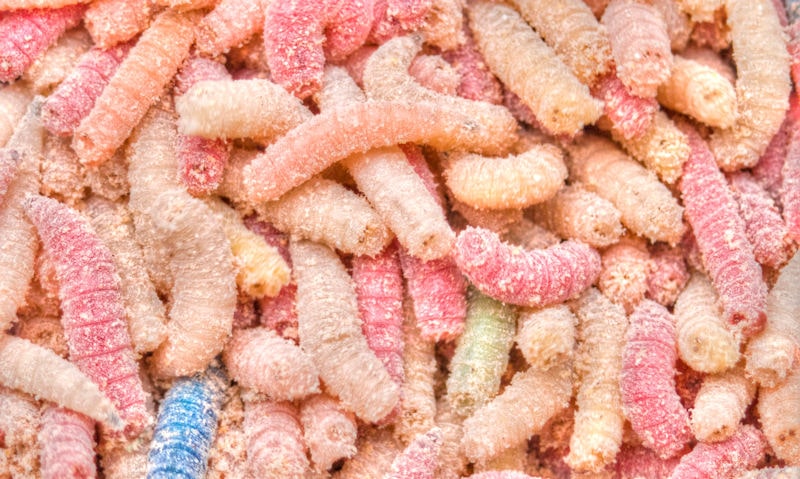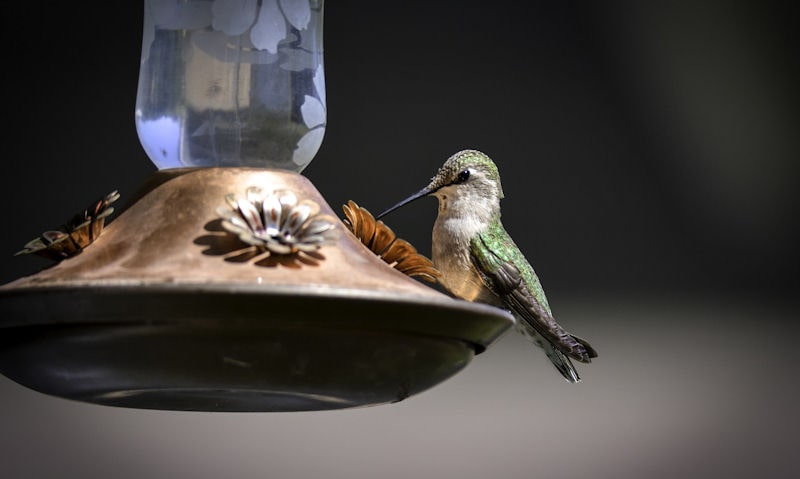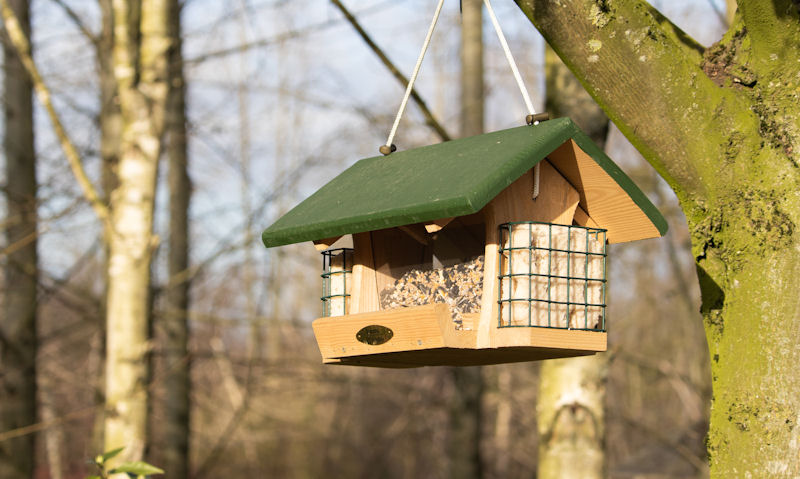Do wild birds eat maggots
There are many weird things you can feed your backyard birds, with maggots not being one of them as they can be a health hazard.
Never feed live or dead maggots to wild birds as they can indeed be poisonous to birds in most cases. Maggots are unsafe for wild birds because what they eat, such as offal, in which will then be consumed by backyard birds. Health issues can carry over to humans too, with Salmonella poisoning a big issue.
It may feel like a win to feed backyard birds maggots out of your bait tub of maggots for fishing, as they are cheap yet very popular with birds that do eat them for sure.
However, there really is no health benefits to be had as maggots don't maintain a healthy diet, while feeding on inferior internal organs which is known as offal.
In turn the offal can cause health issues for delicate small backyard birds once its ingested, leading to sickness then death.
Likewise, dried mealworms for birds would be the healthiest solution, though be it are more expensive to buy. Why that is because mealworms feed on vegetable matter while being more pleasant, and less smelly to work around.
For you to feed maggots to yard backyard birds, while not obvious or seen to be an issue - believe me when I say birds can suffer in due course.
Play it safe then while looking after the well being of yard birds, by never feeding them maggots; while instead only offering live or dried mealworms as a favorite of there's.
Maggots unsafe for wild birds
As a rule to follow for the health and safety of our backyard birds, you should consider maggots to be unsafe for wild birds.
Ingesting maggots in small numbers - such as off a fisherman's maggot pot - would see no harm done, but to begin regularly feeding birds in your yard daily on maggots, can in time cause serious health issues.
Where that health issue comes from is maggots are generally bred on offal, in which can be contaminated before ingested.
Likewise, the similar mealworm is fed on vegetables so in turn is a much healthier solution.
What else can be a problem for wild birds is that maggots can indeed be dyed with chemicals that can have a devastating effect on the birds organs.
Hygiene issues
Mealworms are what you could call a cleaner, more hygienic wild bird food for use with many insect eating backyard birds.
That can't be said for maggots because again, they are bred on offal in a factory or farm that regularly uses poor health standards, so can cause issues for birds later on.
Result of that is maggots can ingest huge amounts of bacteria that can kill, but incredibly can become a human health issue too.
According to Healthline on the matter of maggots, they state maggots can become contaminated with Salmonella enteritidis and Escherichia coli bacteria.
While that mostly refers to maggots found in nature, as they feed off faeces or dead animals - farmed maggots would indeed by far my sanitary.
But to touch maggots then touch your mouth or face with your hands can be unsanitary.
Backyard birds will eat maggots
Not just in the backyard either, as its not uncommon to see anglers - or fisherman - to receive visitation by common yard birds to feed out of or in around a bait tub of maggots.
My experiencing on this is through my dad, you once said while fishing he had a Wren arrive nearby, in a hope of feeding on a handful of maggots.
Sure, my dad fed the Wren the maggots as anyone naturally would under such circumstances.
Its not a rare thing either, thousands of anglers across the country do receive visits by anything from Robins, Orioles, to Sparrows and Chickadees - with many other backyard birds who wish to eat up the anglers maggots.
But it can be mostly ground feeding wild birds, including pigeons and crows who will feed on maggots, as they would eat dried or live mealworms as the better, safer solution.
I would therefore forget about maggots while concentrating on feeding backyard birds mealworms alive, dried or why not re-hydrate dried mealworms for a juicer treat.
Mealworms better option
Avoid what would be nasty, unpleasant maggots to most people as its common to see people associate maggots with poop or things of that matter.
Whereas mealworms are bred for the sole purpose of feeding to wild life or pets, so indeed are far more pleasant to work with.
Maggots can indeed have a smell to them that is not that nice, but can get worse over time.
Mealworms would be the better option, but are not really classed as an alternative; as backyard birds that feed on creepy crawlies in nature are the species to only feed on mealworms, offered to them by people only.
Easy to store but readily available from pet shops or in the supermarket - where a specialty mealworm bird feeder can be used to keep things tidy.
Why not makes things easier for all non-bird feeder birds by throwing over a handful of live or dried mealworms across the lawn or patio.
For hygiene sake, never insert or pile on maggots to bird feeders or bird tables.
Official citation or studies to quote
Having said all that, my reasoning behind not feeding wild birds maggots comes from research of my own, not information found in any official journals or studies.
But I believe my advice to be correct, and I stand by that by never feeding birds in my backyard maggots of any breed or from any reliable source.
Birds do eat maggots off anglers on a river or lake side, but will be sure to swallow up maggots off any rotten corpse of an animal found in the wild.
Health risks involved can lead to poison for birds which would lead to death.
But while my advice is mostly directed at consequences of birds consuming maggots, there are serious health issues to consider with peoples own health.
Poor hygiene well dealing with a tub of maggots can lead to diarrhea and sickness, as maggots can carry Salmonella.
Use common sense then by leaving maggots well alone for sanitary issues, while a nice clean, 100% safe alternative are mealworms.
Conclusion
Absolutely wild birds do eat maggots as they would be happy to be fed them in the yard, or offered to them commonly seen by an angler... fishing on the river banks.
But just because backyard birds do eat maggots, that is not to say they should.
So many health issues can be caused by consuming unsanitary maggots by wild birds, even though we don't get to witness what happens after they are eaten.
But due to Salmonella, among other poison, it can lead to ill health for birds, as well as people themselves.
Likewise, what is consumed by maggots can be worse, so as they are farmed they will eat things like offal - in which can cause issues for birds once ingested.
I would then avoid feeding maggots to backyard birds even though they will be eaten up by them, as its not very good for their health.
Why not then go one better by offering dried or live safe to feed to wild bird mealworms.


